Discover Relentless Health Value
Relentless Health Value

Relentless Health Value
Author: Stacey Richter
Subscribed: 113Played: 3,622Subscribe
Share
©BD Bridges LLC, All Rights Reserved.
Description
American Healthcare Entrepreneurs and Execs you might want to know. Talking.
Relentless Health Value is a weekly interview podcast hosted by Stacey Richter, a healthcare entrepreneur celebrating fifteen years in the business side of healthcare.
This show is for leaders in pharma, devices, payers, providers, patient advocacy and healthcare business. It's for health industry innovators, entrepreneurs or wantrepreneurs or intrapreneurs.
Relentless Healthcare Value is the show for you if you want to connect with others trying to manage the triple play: to provide healthcare value while being personally and professionally fulfilled.
Relentless Health Value is a weekly interview podcast hosted by Stacey Richter, a healthcare entrepreneur celebrating fifteen years in the business side of healthcare.
This show is for leaders in pharma, devices, payers, providers, patient advocacy and healthcare business. It's for health industry innovators, entrepreneurs or wantrepreneurs or intrapreneurs.
Relentless Healthcare Value is the show for you if you want to connect with others trying to manage the triple play: to provide healthcare value while being personally and professionally fulfilled.
617 Episodes
Reverse
This OG of directly contracted high-value networks or Centers of Excellence networks came up, name dropped and everything in the episode with Elizabeth Mitchell from PBGH, the Purchaser Business Group on Health, from two weeks ago. That was episode 491. So, welcome to this deep cut episode with Olivia Ross from way back, pre-pandemic times. This episode of Relentless Health Value revisits the concept of directly contracted high value networks or Centers of Excellence (ECEN) with Olivia Ross. The discussion explores the impact and potential of the ECEN network, emphasizing the importance of quality, price transparency, and multidisciplinary approaches in healthcare. Olivia delves into the reasons why ECEN was significant in past PBGH projects and its current relevance, despite its eventual dismantling due to corporate changes. The episode highlights the benefits for employers in creating their own high-value networks and the positive outcomes from fewer unnecessary surgeries and better quality care. Additionally, it covers the rigorous process of selecting Centers of Excellence and how continuous quality improvement efforts benefit both employers and healthcare providers. === LINKS === 🔗 Show Notes with all mentioned links: https://cc-lnk.com/Take2-EP240 ✉️ Enjoy this podcast? Subscribe to the free weekly newsletter: https://relentlesshealthvalue.com/join-the-relentless-tribe 🫙 Support the podcast with a small donation to the Tip Jar: https://relentlesshealthvalue.com/join-the-relentless-tribe 🎤 Listen on Apple Podcasts https://podcasts.apple.com/us/podcast/feed/id892082003?ls=1 🎤 Listen on Spotify https://open.spotify.com/show/6UjgzI7bScDrWvZEk2f46b 📺 Subscribe to our YouTube channel https://www.youtube.com/@RelentlessHealthValue === CONNECT WITH THE RHV TEAM === ✭ LinkedIn https://www.linkedin.com/company/relentless-health-value/ ✭ Threads https://www.threads.net/@relentlesshealthvalue/ ✭ Bluesky https://bsky.app/profile/relentleshealth.bsky.social ✭ X https://twitter.com/relentleshealth/ 07:40 Prospective bundles and the cost of care. 08:22 How the largest cost savings come from the improvements in quality. 09:51 What Olivia looks for in choosing centers of excellence. 10:36 Creating market pressure and avoiding consolidation. 11:17 Creating positive disruption in the healthcare system. 12:17 How Olivia chooses the centers and providers she works with in the Purchaser Business Group on Health. 13:12 The quality metrics Purchaser Business Group on Health looks at when assessing providers and centers. 14:04 What a team assessment is, and why it's important. 15:07 How local PCPs have to factor into this health care model. 17:57 How Purchaser Business Group on Health intervenes in the patient journey to ensure that the patient and the employer are getting the best quality care for the best price. 19:39 Olivia's suggestions on how to have an intervening conversation with a patient who has already been told he or she needs surgery. 20:18 EP468 with Matt McQuide. 20:20 EP471 with Christine Hale, MD, MBA. 20:22 EP472 with Eric Bricker, MD. 25:27 "Even at a more competitive price point, there's still an upside to them getting this new business." 25:52 How choosing specific physicians is part of the COE designation process. 27:35 How COEs and their physicians are also involved in continuous quality improvement. 30:56 Employers Centers of Excellence Network collaboration with The Leapfrog Group. 32:24 How the Employers Centers of Excellence Network program is open to any employer, no matter the size. 32:54 What it takes to join the Employers Centers of Excellence Network.
In Episode 493 of Relentless Health Value, host Stacey Richter engages in an enlightening discussion with John Quinn, CEO of Wellnecity, about the current revelations and challenges employer CEOs are facing within the healthcare market. Stacey explores whether average employer C-suites are recognizing the fundamental myth that a functioning healthcare market exists. The conversation dives into how self-insured employers are substantially the demand side of the healthcare market and why their lack of insistence on a true market exacerbates high prices. John Quinn shares insights on why C-suites and boards are now more attuned to healthcare spending, emphasizing the need for real-time, correct data and comprehensive vendor accountability. A significant takeaway is the shift from viewing health benefits management as a one-time annual task to adopting a continuous, year-long strategic approach. Finally, the episode delves into actionable steps for employers to manage healthcare costs more effectively without compromising employee health, urging them to move beyond traditional cost-shifting tactics. === LINKS === 🔗 Show Notes with all mentioned links: https://cc-lnk.com/EP493 🔗 Visit our Sponsor Wellnicity https://wellnecity.com/: ✉️ Enjoy this podcast? Subscribe to the free weekly newsletter: https://relentlesshealthvalue.com/join-the-relentless-tribe 🫙 Support the podcast with a small donation to the Tip Jar: https://relentlesshealthvalue.com/join-the-relentless-tribe 📺 Subscribe to our YouTube channel https://www.youtube.com/@RelentlessHealthValue 🎤 Listen on Apple Podcasts https://podcasts.apple.com/us/podcast/feed/id892082003?ls=1 🎤 Listen on Spotify https://open.spotify.com/show/6UjgzI7bScDrWvZEk2f46b === CONNECT WITH THE RHV TEAM === ✭ LinkedIn https://www.linkedin.com/company/relentless-health-value/ ✭ Threads https://www.threads.net/@relentlesshealthvalue/ ✭ Bluesky https://bsky.app/profile/relentleshealth.bsky.social ✭ X https://twitter.com/relentleshealth/ 07:06 Why CEOs are looking more closely at healthcare spend. 08:06 EP397 with Paul Holmes. 08:21 How savings and health benefits are directly connected. 10:45 EP436 with Elizabeth Mitchell. 11:46 What missed earnings look like in relation to healthcare. 14:27 How costs have been shifting to employees for years, and why this doesn't work anymore. 17:36 EP475 with Peter Hayes. 18:23 What employers need to do instead of cost shift. 19:12 EP406 with Lauren Vela. 21:30 Why it's important to make health benefit changes at the speed of business, not at the speed of the benefits year. 26:17 Why is it important to put a finance function into your benefits? 27:10 EP488 with Mark Cuban and Cora Opsahl. 27:33 EP478 (Part 1) with Andreas Mang and Jon Camire. 27:35 Why daily data matters. 31:10 EP487 (Part 1) with Kevin Lyons. 31:21 Why it's important to hold vendors accountable. 31:47 Why it's important to move on from vendors who can't hold up to your scrutiny and needs. 33:46 EP472 with Eric Bricker, MD. 34:46 EP471 with Christine Hale, MD, MBA.
In this episode, host Stacey Richter speaks with Dr. Sam Flanders and Shane Cerone about creating a high-quality hospital management model focused on surviving at 150% of Medicare costs. They discuss the inefficiencies in health systems and practical solutions to improve them without compromising quality. The conversation covers the importance of empowering frontline staff, adopting continuous improvement models like Toyota's, and the critical role of employers in reshaping market dynamics through direct negotiation and price transparency. The episode emphasizes actionable steps for hospital executives, plan sponsors, and employers to drive significant improvements in healthcare efficiency and affordability. === LINKS === 🔗 Show Notes with all mentioned links: https://cc-lnk.com/EP492 ✉️ Enjoy this podcast? Subscribe to the free weekly newsletter: https://relentlesshealthvalue.com/join-the-relentless-tribe 🫙 Support the podcast with a small donation to the Tip Jar: https://relentlesshealthvalue.com/join-the-relentless-tribe 📺 Subscribe to our YouTube channel https://www.youtube.com/@RelentlessHealthValue 🎤 Listen on Apple Podcasts https://podcasts.apple.com/us/podcast/feed/id892082003?ls=1 🎤 Listen on Spotify https://open.spotify.com/show/6UjgzI7bScDrWvZEk2f46b === CONNECT WITH THE RHV TEAM === ✭ LinkedIn https://www.linkedin.com/company/relentless-health-value/ ✭ Threads https://www.threads.net/@relentlesshealthvalue/ ✭ Bluesky https://bsky.app/profile/relentleshealth.bsky.social ✭ X https://twitter.com/relentleshealth/ 07:08 What are the many problems that health systems deal with? 08:44 EP483 (Part 1 and Part 2) with Jonathan Baran. 09:43 What was the real achievement in building this hospital system? 10:25 EP489 (Part 1 and Part 2) with Dan Greenleaf. 10:42 Why productivity and patient access are the top two things to focus on. 11:36 EP488 with Mark Cuban and Cora Opsahl. 12:32 EP455 with Beau Raymond, MD. 12:58 The lean model versus the Toyota model. 16:06 EP438 with John Lee, MD. 16:40 EP481 with Benjamin Schwartz, MD, MBA. 17:44 Why small changes accumulated create greater change than big changes. 21:01 How an efficiency mindset can increase improvement faster. 27:42 Why administrators should not be negotiators. 28:11 EP491 with Elizabeth Mitchell. 29:06 What are the steps to this multifaceted process? 30:17 EP286 with John Rodis, MD, MBA. 30:48 Study by Suhas Gondi, MD, MBA, on hospital boards. 33:03 Why it's important to focus on the pricing issue first. 33:49 What Kada Health is all about.
In Episode 491, Stacey Richter interviews Elizabeth Mitchell, CEO of the Purchaser's Business Group on Health (PBGH), about the PBGH Transparency Demonstration Project. They discuss the project's aim to provide jumbo self-insured employers with transparency in healthcare costs, quality, and safety data. Collaborating with Milliman and Embold and funded by the Peterson Center on Healthcare, PBGH's project reveals no correlation between higher prices and quality in healthcare services. The episode highlights the impacts on TPAs, consultants, and clinical organizations, and underscores the importance of employers using this new transparency data for strategic advantage and compliance with the Consolidated Appropriations Act. Richter and Mitchell delve into the broader implications for creating high-value networks and fostering market competition based on quality and affordability. === LINKS === 🔗 Show Notes with all mentioned links: https://cc-lnk.com/EP491 ✉️ Enjoy this podcast? Subscribe to the free weekly newsletter: https://relentlesshealthvalue.com/join-the-relentless-tribe 🫙 Support the podcast with a small donation to the Tip Jar: https://relentlesshealthvalue.com/join-the-relentless-tribe 📺 Subscribe to our YouTube channel https://www.youtube.com/@RelentlessHealthValue 🎤 Listen on Apple Podcasts https://podcasts.apple.com/us/podcast/feed/id892082003?ls=1 🎤 Listen on Spotify https://open.spotify.com/show/6UjgzI7bScDrWvZEk2f46b === CONNECT WITH THE RHV TEAM === ✭ LinkedIn https://www.linkedin.com/company/relentless-health-value/ ✭ Threads https://www.threads.net/@relentlesshealthvalue/ ✭ Bluesky https://bsky.app/profile/relentleshealth.bsky.social ✭ X https://twitter.com/relentleshealth/ 06:35 How did PBGH's transparency project start? 07:35 EP428 with Julie Selesnick. 07:37 EP408 with Chris Deacon. 07:39 Why the changes to the CAA and ERISA meant heightened risk for employers and individuals within companies. 09:09 "You can't outsource the risk." 11:10 How PBGH's transparency project demonstrated some clients being noncompliant. 12:52 Why is it irresponsible not to use the data presented if you're a self-insured employer? 15:06 How did PBGH use the transparency data and apply it effectively to improve their offerings and business? 18:37 Why TPAs should not negotiate contracts. 19:17 EP485 with Cristin Dickerson, MD. 19:22 EP486 with Stan Schwartz, MD. 19:24 EP488 with Mark Cuban and Cora Opsahl. 20:58 "There is no good price for unsafe care." 21:36 How PBGH found using the transparency data to be totally feasible. 25:03 EP483 (Part 1) with Jonathan Baran. 25:32 Why the market will evolve with this data. 28:04 EP369 with Keith Hartman, RPh. 28:06 EP370 with Erik Davis and Autumn Yongchu. 28:34 What PBGH discovered about high-value centers and centers of excellence. 28:59 EP240 with Olivia Ross. 32:26 Why incentives are another challenge. 33:49 Why this is good news for unconflicted benefits consultants. 36:04 EP487 (Part 1) with Kevin Lyons. 39:48 Why transparency is going to become the new normal. 40:22 The Innovator's Dilemma by Clayton M. Christensen. 42:14 EP436 with Elizabeth Mitchell. 44:07 EP286 with John Rodis, MD, MBA. 45:22 Why there is a great incentive to be a great clinician right now. 46:18 How this information can motivate competition in the right place. 46:52 EP490 (Part 1) with Shane Cerone and Sam Flanders, MD.
In this episode of Relentless Health Value, host Stacey Richter speaks with Shane Cerone and Dr. Sam Flanders of Kada Health about three pervasive myths in the healthcare industry. They discuss the belief in a functioning healthcare market, the necessity of high prices for hospital survival, and the notion that reducing prices means lower quality care. Highlighting the inefficiencies and lack of competition in the current system, they address the importance of transparency and competition. This episode sets the stage for a follow-up discussion focusing on tangible solutions and improvements for the healthcare system. === LINKS === 🔗 Show Notes with all mentioned links: https://cc-lnk.com/EP490-Part1 ✉️ Enjoy this podcast? Subscribe to the free weekly newsletter: https://relentlesshealthvalue.com/join-the-relentless-tribe 🫙 Support the podcast with a small donation to the Tip Jar: https://relentlesshealthvalue.com/join-the-relentless-tribe 📺 Subscribe to our YouTube channel https://www.youtube.com/@RelentlessHealthValue 🎤 Listen on Apple Podcasts https://podcasts.apple.com/us/podcast/feed/id892082003?ls=1 🎤 Listen on Spotify https://open.spotify.com/show/6UjgzI7bScDrWvZEk2f46b === CONNECT WITH THE RHV TEAM === ✭ LinkedIn https://www.linkedin.com/company/relentless-health-value/ ✭ Threads https://www.threads.net/@relentlesshealthvalue/ ✭ Bluesky https://bsky.app/profile/relentleshealth.bsky.social ✭ X https://twitter.com/relentleshealth/ 09:28 EP466 with Vivian Ho, PhD. 09:31 EP486 with Stan Schwartz, MD. 09:42 EP488 with Mark Cuban and Cora Opsahl. 10:08 Why we need to focus on prices in healthcare. 11:50 The first myth that holds change back: the healthcare "market." 15:04 EP286 with John Rodis, MD, MBA. 15:51 The reality behind why there is no functional market in healthcare. 17:11 Why price simplicity is so important. 19:15 EP472 with Eric Bricker, MD. 19:31 How there is pricing failure while hospitals are still facing razor-thin margins. 22:11 The second myth: Can a hospital survive on Medicare rates alone? 25:21 What is the best hospitals can achieve? 26:01 List of hospitals recognized as national leaders for care quality and affordability. 29:23 The third myth: When you lower prices, do you get lower quality? 33:11 Why a decentralized approach at improvement is the way to lower cost and raise quality.
In Episode 489 Part 2 of 'Relentlessly Seeking Value,' Stacey Richter continues the series on 'Mission Margin' by focusing on the financial sustainability aspect with guest Dan Greenleaf, CEO of Duly, a multi-specialty group. The episode dives into the balance between maintaining mission-driven healthcare, which includes affordability, accessibility, and quality, and achieving financial margins. Dan discusses practical strategies like reducing network leakage, negotiating effectively with payers, and leveraging technologies to lower operational costs. The conversation also highlights the significance of clinician involvement in leadership and the value of having aligned incentives across the organization. Additionally, the episode addresses the role of capital partners in sustaining such healthcare models and ensuring they are effective and sustainable. === LINKS === 🔗 Show Notes with all mentioned links: https://cc-lnk.com/EP489-Part2 ✉️ Enjoy this podcast? Subscribe to the free weekly newsletter: https://relentlesshealthvalue.com/join-the-relentless-tribe 🫙 Support the podcast with a small donation to the Tip Jar: https://relentlesshealthvalue.com/join-the-relentless-tribe 📺 Subscribe to our YouTube channel https://www.youtube.com/@RelentlessHealthValue 🎤 Listen on Apple Podcasts https://podcasts.apple.com/us/podcast/feed/id892082003?ls=1 🎤 Listen on Spotify https://open.spotify.com/show/6UjgzI7bScDrWvZEk2f46b === CONNECT WITH THE RHV TEAM === ✭ LinkedIn https://www.linkedin.com/company/relentless-health-value/ ✭ Threads https://www.threads.net/@relentlesshealthvalue/ ✭ Bluesky https://bsky.app/profile/relentleshealth.bsky.social ✭ X https://twitter.com/relentleshealth/. 09:56 How does Dan achieve his mission given the realities of margin? 14:49 How Duly Health's approach and incentives differ from other health systems. 16:04 EP466 with Vivian Ho, PhD. 16:28 EP462 with Scott Conard, MD. 16:31 Summer Shorts episode with Stan Schwartz, MD. 17:27 EP460 with Rushika Fernandopulle, MD. 17:29 EP445 with Tom X. Lee, MD. 17:30 EP407 with Vivek Garg, MD, MBA. 18:50 How having physicians on the hospital board greatly improves margin and mission. 20:04 How Dan explains his approach to his capital partners. 22:23 Fee for service vs. institutional care.
In this episode of Relentless Health Value, Stacey Richter talks mission with Dan Greenleaf, CEO of Duly Health and Care. Next week we cover margin. The discussion delves into the crucial balance between mission and margin in healthcare, highlighting how focusing on mission can drive financial stability. The interview centers around four key quadrants of Duly's mission: affordability, access, consumer experience, and quality. Greenleaf emphasizes how these elements are interconnected and essential for providing better healthcare outcomes and financial viability. The episode is part of a series exploring the mission/margin dynamic in the healthcare industry, and sets the stage for a deeper dive into how mission-focused strategies can result in decent margins in next week's episode. === LINKS === 🔗 Show Notes with all mentioned links: https://cc-lnk.com/EP489-Part1 ✉️ Enjoy this podcast? Subscribe to the free weekly newsletter: https://relentlesshealthvalue.com/join-the-relentless-tribe 🫙 Support the podcast with a small donation to the Tip Jar: https://relentlesshealthvalue.com/join-the-relentless-tribe 🎤 Listen on Apple Podcasts https://podcasts.apple.com/us/podcast/feed/id892082003?ls=1 🎤 Listen on Spotify https://open.spotify.com/show/6UjgzI7bScDrWvZEk2f46b 📺 Subscribe to our YouTube channel https://www.youtube.com/@RelentlessHealthValue === CONNECT WITH THE RHV TEAM === ✭ LinkedIn https://www.linkedin.com/company/relentless-health-value/ ✭ Threads https://www.threads.net/@relentlesshealthvalue/ ✭ Bluesky https://bsky.app/profile/relentleshealth.bsky.social ✭ X https://twitter.com/relentleshealth/ 08:32 What should mission be in multispecialty? 08:54 Are mission and margin mutually exclusive? 10:47 What are the four "vectors" of Dan's mission? 11:32 Why does affordability matter? 12:11 EP466 with Vivian Ho, PhD. 12:40 EP488 with Mark Cuban and Cora Opsahl. 13:32 Who are the three payers in the marketplace? 17:31 EP388 with Merrill Goozner. 19:19 How does access play into mission? 20:28 EP464 with Al Lewis. 21:07 EP467 with Stacey. 22:56 Why price transparency is important to consumer experience. 24:16 LinkedIn post from Patrick Moore. 29:06 EP481 with Benjamin Schwartz, MD, MBA.
Stacey Richter is joined by Mark Cuban, CEO and founder of Mark Cuban Cost Plus Drugs, and Cora Opsahl, Health Fund Director of the 32BJ Health Fund, to discuss pressing issues in American healthcare. The conversation centers on the inefficiencies and complexities created by high deductible health plans and the layers of vendors self-insured employers hire to manage healthcare claims. Mark Cuban and Cora Opsahl advocate for direct contracting and increased transparency as solutions to reduce costs and improve outcomes. They also explore the potential of simplifying the system back to a more straightforward model where healthcare prices are transparent, and patients and providers can establish trust. This episode emphasizes the importance of leadership and a proactive approach in managing healthcare costs. If you are listening to this prior to October 9, 2025, go to the 32BJ Changing the Playbook on Hospital Prices event, where Mark Cuban will be keynoting. Cora Opsahl will also be speaking, and I will be there listening. https://32bjhealthinsights.org/2025-events/ === LINKS === 🔗 Show Notes with all mentioned links: https://cc-lnk.com/EP488 🔗 Healthcare Industry Acronyms and Terms https://relentlesshealthvalue.com/healthcare-acronymns ✉️ Enjoy this podcast? Subscribe to the free weekly newsletter: https://relentlesshealthvalue.com/join-the-relentless-tribe 🫙 Support the podcast with a small donation to the Tip Jar: https://relentlesshealthvalue.com/join-the-relentless-tribe 🎤 Listen on Apple Podcasts https://podcasts.apple.com/us/podcast/feed/id892082003?ls=1 🎤 Listen on Spotify https://open.spotify.com/show/6UjgzI7bScDrWvZEk2f46b 📺 Subscribe to our YouTube channel https://www.youtube.com/@RelentlessHealthValue === CONNECT WITH THE RHV TEAM === ✭ LinkedIn https://www.linkedin.com/company/relentless-health-value/ ✭ Threads https://www.threads.net/@relentlesshealthvalue/ ✭ Bluesky https://bsky.app/profile/relentleshealth.bsky.social ✭ X https://twitter.com/relentleshealth/ 06:25 What was the original rationale behind high deductibles? 07:38 How high deductibles are creating a class of functionally uninsured people. 09:29 EP482 with Preston Alexander. 10:20 "We're using health insurance as a proxy for healthcare." —Mark 12:30 How providers are now in the debt collecting business rather than the healthcare business. 12:55 EP486 with Stan Schwartz, MD. 15:16 "We have a fundamental reasonability problem." —Cora 16:07 EP425 with Marshall Allen. 18:25 Direct contracting versus self-funded employers. 19:27 EP436 with Elizabeth Mitchell. 19:30 EP480 with Kimberly Carleson. 19:33 EP372 with Cora Opsahl. 23:53 Why the current system doesn't allow the accountability that is needed. 24:39 EP452 with Cora Opsahl. 26:34 How direct contracting gives strength back to independent practices that high deductible plans take away. 27:46 Who pays, what's the price, and where does the power lie? 31:24 EP419 with Andreas Mang. 34:45 How it comes down to power and leverage when controlling healthcare costs. 38:13 EP483 (Part 1 and Part 2) with Jonathan Baran. 38:35 Why putting together a network and just buying healthcare—not discounts—is not as difficult as it seems. 40:10 Why we need to stop talking about disruption and start talking about change. 40:56 EP453 with Claire Brockbank. 41:02 EP484 with Dave Chase. 43:07 EP485 with Cristin Dickerson, MD. 44:32 EP487 (Part 1) with Kevin Lyons. 46:34 EP466 with Vivian Ho, PhD. 47:40 Why it's the incentives that are different between American hospitals and hospitals in a single-payer program. 50:25 The main takeaways from the conversation. 51:08 Why you can't fix the problems in healthcare without transparency.
In episode 487, part two, host Stacey Richter interviews Kevin Lyons, a former police detective and current Executive Director of the New Jersey State Police Benevolence Association about the application of detective skills to analyze healthcare spending. Following a discussion on the barriers driving up healthcare costs in part one, Lyons delves into techniques such as statement analysis and facial recognition to identify deceit and uncover where healthcare dollars are going. Lyons emphasizes the need for preparation, persistent questioning, and the importance of following the money, thereby encouraging a fearless approach to advocating for transparency and better healthcare management. === LINKS === 🔗 Show Notes with all mentioned links: https://cc-lnk.com/EP487Part2 ✉️ Enjoy this podcast? Subscribe to the free weekly newsletter: https://relentlesshealthvalue.com/join-the-relentless-tribe 🫙 Support the podcast with a small donation to the Tip Jar: https://relentlesshealthvalue.com/join-the-relentless-tribe 🎤 Listen on Apple Podcasts https://podcasts.apple.com/us/podcast/feed/id892082003?ls=1 🎤 Listen on Spotify https://open.spotify.com/show/6UjgzI7bScDrWvZEk2f46b 📺 Subscribe to our YouTube channel https://www.youtube.com/@RelentlessHealthValue === CONNECT WITH THE RHV TEAM === ✭ LinkedIn https://www.linkedin.com/company/relentless-health-value/ ✭ Threads https://www.threads.net/@relentlesshealthvalue/ ✭ Bluesky https://bsky.app/profile/relentleshealth.bsky.social ✭ X https://twitter.com/relentleshealth/ 00:00 Introduction and Episode Overview 00:25 Recap of Part One: Barriers to Reducing Healthcare Costs 03:01 Introducing Kevin Lyons: Detective Skills in Healthcare 03:52 Detective Techniques Applied to Healthcare 06:41 Challenges and Solutions in Healthcare Transparency 12:15 Final Thoughts and Acknowledgements 13:10 Closing Remarks and Podcast Information
In Episode 487 of Relentless Health Value, host Stacey Richter speaks with Kevin Lyons, a former police detective and current executive director at the New Jersey State Police Benevolence Association. They explore, in this two part episode, the significant challenges public sector employees face in obtaining cost-effective health benefits. The discussion highlights key issues, including the influence of industry profit motives, governmental hiring practices, and media sponsorship biases. Lyons shares insights on the rapidly escalating costs of healthcare for state workers, with specific examples from New Jersey, emphasizing the need for innovative solutions and improved legislative action. The conversation sets the stage for a subsequent episode where Lyons will delve deeper into applying detective skills to uncover financial trails and propose effective changes. Tune in next week for part 2 when Kevin talks about how he pulls out his notebook and uses what he learned as a detective to, first of all, figure out everything probably that we just talked about in this part one. But also, you can't solve for something unless you do what most investigators do, which is follow the money. === LINKS === 🔗 Show Notes with all mentioned links: https://relentlesshealthvalue.com/episodes ✉️ Enjoy this podcast? Subscribe to the free weekly newsletter: https://relentlesshealthvalue.com/join-the-relentless-tribe 🫙 Support the podcast with a small donation to the Tip Jar: https://relentlesshealthvalue.com/join-the-relentless-tribe 🎤 Listen on Apple Podcasts https://podcasts.apple.com/us/podcast/feed/id892082003?ls=1 🎤 Listen on Spotify https://open.spotify.com/show/6UjgzI7bScDrWvZEk2f46b 📺 Subscribe to our YouTube channel https://www.youtube.com/@RelentlessHealthValue === CONNECT WITH THE RHV TEAM === ✭ LinkedIn https://www.linkedin.com/company/relentless-health-value/ ✭ Threads https://www.threads.net/@relentlesshealthvalue/ ✭ Bluesky https://bsky.app/profile/relentleshealth.bsky.social ✭ X https://twitter.com/relentleshealth/ 00:00 Introduction to Episode 487 00:33 Viral Video and Metaphor for Healthcare 04:48 Healthcare Costs and Union Challenges 07:32 Interview with Kevin Lyons Begins 08:17 Why is it important to "dig in" right now on health benefit cost increases? 08:39 Barriers to Affordable Healthcare 10:16 The first barrier to better health benefits: profit defending profit. 10:54 Profit Defense and Political Influence 16:38 Why "throw money at the problem" isn't a real solution. 18:31 The second barrier: why a lack of employed experts costs more money. 18:59 Government Inefficiencies and Conflicts of Interest 25:58 The third barrier: media sponsorship from incumbents prevents change. 26:19 Media Influence and Public Perception 28:55 EP483 (Part 1 and Part 2) with Jonathan Baran. 30:23 Conclusion and Teaser for Part Two
In this episode of Relentless Health Value, host Stacey Richter sits down with Dr. Stan Schwartz, co-founder of ZERO.health, to explore the practical realities and benefits of direct contracting in healthcare. Dr. Schwartz shares his journey from traditional healthcare to pioneering bundled payments and direct contracts, offering actionable insights for employers, providers, and anyone interested in making healthcare more affordable and predictable. The conversation covers the challenges of claims, cost variability, operationalizing direct contracts, and the impact on both patients and providers. Discover how employers and providers can use bundled payments to cut costs, simplify administration, and deliver $0 out-of-pocket care for patients. It was an honor to get Dr. Schwartz on the pod, and we are doubly thankful because he stepped up and offered to help support Relentless Health Value financially as well as spending his time with me and you. So, thanks to everyone over at ZERO.health for being part of the kind of folks who support shows like this one. Dr. Stan Schwartz is co-founder over at ZERO.health. ZERO gets members access to high-quality providers for $0 out of pocket, leveraging bundled payments and direct contracting. This episode, as I just said, is sponsored by ZERO.health, with an assist from Aventria Health Group. === LINKS === 🔗 Show Notes with all mentioned links: https://relentlesshealthvalue.com/episodes 🔗 Zero.Health https://zero.health.com ✉️ Enjoy this podcast? Subscribe to the free weekly newsletter: https://relentlesshealthvalue.com/join-the-relentless-tribe 🫙 Support the podcast with a small donation to the Tip Jar: https://relentlesshealthvalue.com/join-the-relentless-tribe 🎤 Listen on Apple Podcasts https://podcasts.apple.com/us/podcast/feed/id892082003?ls=1 🎤 Listen on Spotify https://open.spotify.com/show/6UjgzI7bScDrWvZEk2f46b 📺 Subscribe to our YouTube channel https://www.youtube.com/@RelentlessHealthValue === CONNECT WITH THE RHV TEAM === ✭ LinkedIn https://www.linkedin.com/company/relentless-health-value/ ✭ Threads https://www.threads.net/@relentlesshealthvalue/ ✭ Bluesky https://bsky.app/profile/relentleshealth.bsky.social ✭ X https://twitter.com/relentleshealth/ 07:59 How did ZERO.health start? 10:38 EP480 with Kimberly Carleson. 11:04 Why does the emotional energy behind understanding how the problem of healthcare affects individuals matter in changing healthcare? 12:45 "If you can schedule it, you can put a price on it." 15:32 EP420 with Ge Bai, PhD, CPA. 16:38 EP436 with Elizabeth Mitchell. 18:21 How do employers ensure that patients and clinicians are coordinated and on board with direct contracting within their health plans? 20:26 EP475 with Peter Hayes. 22:52 Why is it important that this direct contracting system isn't mandatory for health plan members? 24:50 How does direct contracting affect excessive utilization? 26:41 EP477 (Through Line Show) with Stacey. 27:29 Why is it important that your plan benefits benefit health? 29:39 Why is it important to educate not only members but also providers who agree to participate in the program? 31:06 "It's all about simplicity." 33:11 How do you ensure plan members use the service after it is installed? Recent past interviews: Click a guest's name for their latest RHV episode! Dr Cristin Dickerson, Elizabeth Mitchell (Take Two: EP436), Dave Chase, Jonathan Baran (Part 2), Jonathan Baran (Part 1), Jonathan Baran (Bonus Episode), Dr Stan Schwartz (Summer Shorts), Preston Alexander, Dr Tom X Lee (Take Two: EP445), Dr Tom X Lee (Bonus Episode), Dr Benjamin Schwartz, Dr John Lee (Take Two: EP438)
In episode 485, Stacey Richter interviews Dr. Cristin Dickerson on the topic of direct contracting for imaging services. They discuss the high costs of imaging, which can account for 6-11% of a plan sponsor's healthcare spend. The episode covers the potential for significant cost savings and improved patient access through direct contracting, bypassing traditional TPAs that may have conflicts of interest or contractual constraints. Dr. Dickerson, who is the founding partner of Green Imaging, explains how her organization has successfully implemented direct contracting, providing affordable and high-quality imaging services nationwide. They also address common barriers such as complexity in coding and payment processes, the reluctance of TPAs, and the habitual referral to 'down the hall' services. The conversation highlights the importance of price transparency, patient education, and how Green Imaging supports plan sponsors in navigating these challenges. === LINKS === 🔗 Show Notes with all mentioned links: https://cc-lnk.com/EP486 ✉️ Enjoy this podcast? Subscribe to the free weekly newsletter: https://relentlesshealthvalue.com/join-the-relentless-tribe 🫙 Support the podcast with a small donation to the Tip Jar: https://relentlesshealthvalue.com/join-the-relentless-tribe 🎤 Listen on Apple Podcasts https://podcasts.apple.com/us/podcast/feed/id892082003?ls=1 🎤 Listen on Spotify https://open.spotify.com/show/6UjgzI7bScDrWvZEk2f46b 📺 Subscribe to our YouTube channel https://www.youtube.com/@RelentlessHealthValue === CONNECT WITH THE RHV TEAM === ✭ LinkedIn https://www.linkedin.com/company/relentless-health-value/ ✭ Threads https://www.threads.net/@relentlesshealthvalue/ ✭ Bluesky https://bsky.app/profile/relentleshealth.bsky.social ✭ X https://twitter.com/relentleshealth/ 00:00 Introduction and Episode Overview 00:31 The Case for Direct Contracting in Imaging 01:43 Real-World Examples and Challenges 04:47 The Importance of Data and Transparency 08:49 Interview with Dr. Kristen Dickerson 12:39 Barriers to Direct Contracting 24:05 Overcoming Barriers and Final Thoughts 33:22 Conclusion and Contact Information
Exploring TPA and Health Plan Inertia with Elizabeth Mitchell: What Plan Sponsors Need to Know. In this Take 2 of episode 436 of Relentless Health Value, host Stacey Richter speaks with Elizabeth Mitchell, President and CEO of the Purchaser Business Group on Health, about the challenges third-party administrators (TPAs) face, the issues around hidden fees, and the problems with health plan inertia. They discuss how self-insured employers can find reliable TPA partners, the impact of anti-competitive contracts, and the importance of transparency in healthcare procurement. Mitchell emphasizes the need for direct contracting between employers and providers to reduce costs and improve quality. The episode covers the implications of the Consolidated Appropriations Act, the role of brokers, and how employers can achieve better value for their healthcare spend. === LINKS === 🔗 Show Notes with all mentioned links: https://cc-lnk.com/EP436-Take2 ✉️ Enjoy this podcast? Subscribe to the free weekly newsletter: https://relentlesshealthvalue.com/join-the-relentless-tribe 🫙 Support the podcast with a small donation to the Tip Jar: https://relentlesshealthvalue.com/join-the-relentless-tribe 🎤 Listen on Apple Podcasts https://podcasts.apple.com/us/podcast/feed/id892082003?ls=1 🎤 Listen on Spotify https://open.spotify.com/show/6UjgzI7bScDrWvZEk2f46b 📺 Subscribe to our YouTube channel https://www.youtube.com/@RelentlessHealthValue === CONNECT WITH THE RHV TEAM === ✭ LinkedIn https://www.linkedin.com/company/relentless-health-value/ ✭ Threads https://www.threads.net/@relentlesshealthvalue/ ✭ Bluesky https://bsky.app/profile/relentleshealth.bsky.social ✭ X https://twitter.com/relentleshealth/ 08:06 What is the overarching context for health plans in healthcare purchasing? 11:31 Why is it important to reestablish a connection between the people paying for care and people providing care? 13:47 What are the needs of a self-insured employer when managing employee benefits? 19:00 Is it doable for employers to set their own contracts? 21:24 Is transparency presumed? 22:39 Will the new transparency upon us actually expose wasted expense? 24:23 EP408 with Chris Deacon. 25:58 "This is not about individual bad actors. … The systems … that is not aligned." 27:39 Are there providers who want to work directly with employers? 30:53 Why is it important that incentives need to be aligned? 32:42 EP427 with Rik Renard. 33:51 What's missing from the conversation on changing health plans?
In Episode 484 of Relentless Health Value, host Stacey Richter talks with Dave Chase from Health Rosetta about the three most pressing questions faced by self-insured employers today. The discussion covers how to verify if a benefits advisor truly protects employer interests, avoiding personal liability when third-party administrator contracts have hidden conflicts, and identifying if employers are being systematically overcharged on pharmacy costs despite PBM guarantees. The episode emphasizes the importance of accessing comprehensive data to identify conflicts and transparency in reporting, and it highlights open source resources available to create high-performance health plans. The conversation also mentions noteworthy related episodes and cases to provide further context and insights. === LINKS === 🔗 Show Notes with all mentioned links: https://relentlesshealthvalue.com/episodes ✉️ Enjoy this podcast? Subscribe to the free weekly newsletter: https://relentlesshealthvalue.com/join-the-relentless-tribe 🫙 Support the podcast with a small donation to the Tip Jar: https://relentlesshealthvalue.com/join-the-relentless-tribe 🎤 Listen on Apple Podcasts https://podcasts.apple.com/us/podcast/feed/id892082003?ls=1 🎤 Listen on Spotify https://open.spotify.com/show/6UjgzI7bScDrWvZEk2f46b 📺 Subscribe to our YouTube channel https://www.youtube.com/@RelentlessHealthValue === CONNECT WITH THE RHV TEAM === ✭ LinkedIn https://www.linkedin.com/company/relentless-health-value/ ✭ Threads https://www.threads.net/@relentlesshealthvalue/ ✭ Bluesky https://bsky.app/profile/relentleshealth.bsky.social ✭ X https://twitter.com/relentleshealth/ 06:36 What questions does a plan sponsor need to ask their consultant, EBC, or broker to ensure they are protecting the interest of the plan sponsor? 07:59 EP478 with Andreas Mang and Jon Camire. 08:49 EP453 with Claire Brockbank. 09:51 EP433 with Justin Leader. 09:53 EP436 with Elizabeth Mitchell. 11:03 How can plan sponsors avoid personal liability when their TPA has hidden conflicts of interest? 11:40 Tiara Yachts v. Blue Cross Blue Shield of Michigan lawsuit. 13:48 EP483 (Part 1) with Jonathan Baran. 14:18 EP457 with Cynthia Fisher. 16:18 The Marshall-Hickenlooper bill called the Price Tags Act. 16:50 Summer Short with Elizabeth Mitchell. 17:36 How do plan sponsors figure out if they are being overcharged for pharmacy benefits? 18:09 EP365 with Scott Haas. 20:18 EP397 with Paul Holmes. 20:22 EP465 with Chris Crawford. 20:37 EP429 with Luke Slindee, PharmD. 22:56 EP476 with Ann Lewandowski. 28:38 Where to find open-source resources to help guide plan sponsors with making better health plan decisions. 29:47 How the open-source trend is growing for health transparency. 30:48 What to look forward to at RosettaFest.
In the second part of this conversation with Jonathan Baran, CEO of Self Fund Health, the focus is on reversing the negative cycle of skyrocketing healthcare costs by shifting from buying discounts to investing in primary care and better benefit designs. The discussion highlights the current issues with the healthcare flywheel, driven by employers buying discounts, and offers solutions such as investing in direct primary care, incentivizing proper healthcare utilization, and improving patient navigation. The conversation also explores the potential for direct contracting between employers and health systems, aiming for a paradigm shift where employers, brokers, and health plans work collaboratively to improve member health and reduce costs. === LINKS === 🔗 Show Notes with all mentioned links: https://relentlesshealthvalue.com/episodes ✉️ Enjoy this podcast? Subscribe to the free weekly newsletter: https://relentlesshealthvalue.com/join-the-relentless-tribe 🫙 Support the podcast with a small donation to the Tip Jar: https://relentlesshealthvalue.com/join-the-relentless-tribe 🎤 Listen on Apple Podcasts https://podcasts.apple.com/us/podcast/feed/id892082003?ls=1 🎤 Listen on Spotify https://open.spotify.com/show/6UjgzI7bScDrWvZEk2f46b 📺 Subscribe to our YouTube channel https://www.youtube.com/@RelentlessHealthValue === CONNECT WITH THE RHV TEAM === ✭ LinkedIn https://www.linkedin.com/company/relentless-health-value/ ✭ Threads https://www.threads.net/@relentlesshealthvalue/ ✭ Bluesky https://bsky.app/profile/relentleshealth.bsky.social ✭ X https://twitter.com/relentleshealth/ 05:23 Where to start in reversing the flywheel. 06:57 Why investing in primary care is pivotal to containing healthcare costs. 10:02 EP453 with Claire Brockbank. 10:04 EP452 with Cora Opsahl. 10:07 EP457 with Cynthia Fisher. 10:12 EP365 with Scott Haas. 10:13 EP465 with Chris Crawford. 10:14 EP475 with Peter Hayes. 11:11 EP468 with Matt McQuide. 11:13 EP472 with Eric Bricker, MD. 12:14 "The most expensive thing in healthcare is the pen of the primary care doctor." 13:04 How the role of the broker has to fundamentally change. 16:16 What will the single most challenging aspect of this restructuring become? 20:20 How self-funded employers can be amazing customers in containing the rising cost flywheel in healthcare. 22:56 How do EHRs and other medical record systems play into reversing the flywheel of rising healthcare costs? 23:57 Ramy Khalil, MD's post on interoperability. 24:59 Why is it important for employers to drive volume differently? 25:38 How Self Fund Health is helping in this regard.
In this episode Stacey Richter speaks with Jonathan Baran, CEO of Self Fund Health in a detailed exploration of what they term the 'Flywheel Downward Spiral' of American healthcare costs. The conversation delves into how electronic health records (EHR) and the incentives driving insurers, brokers, and hospital systems contribute to consistently rising healthcare premiums. Key points include how insurers profit from high premiums, the misleading marketing focus on discounts rather than actual costs, and the role of EHR systems in maximizing hospital profits rather than improving patient care. The episode sets the stage for a subsequent discussion on reversing these trends, aiming to align healthcare outcomes with cost reductions. Self Fund Health, I am so pleased to tell you, as I am always so pleased to tell you, did make such a kind offer to help out Relentless Health Value financially. You and the tribe here are really, really great folks who I truly appreciate. Please support Self Fund Health if you are in Wisconsin. This episode is sponsored by Self Fund Health. === LINKS === 🔗 Self Fund Health: https://selffundhealth.com 🔗 Show Notes with all mentioned links: https://relentlesshealthvalue.com/episodes ✉️ Enjoy this podcast? Subscribe to the free weekly newsletter: https://relentlesshealthvalue.com/join-the-relentless-tribe 🫙 Support the podcast with a small donation to the Tip Jar: https://relentlesshealthvalue.com/join-the-relentless-tribe 🎤 Listen on Apple Podcasts https://podcasts.apple.com/us/podcast/feed/id892082003?ls=1 🎤 Listen on Spotify https://open.spotify.com/show/6UjgzI7bScDrWvZEk2f46b 📺 Subscribe to our YouTube channel https://www.youtube.com/@RelentlessHealthValue === CONNECT WITH THE RHV TEAM === ✭ LinkedIn https://www.linkedin.com/company/relentless-health-value/ ✭ Threads https://www.threads.net/@relentlesshealthvalue/ ✭ Bluesky https://bsky.app/profile/relentleshealth.bsky.social ✭ X https://twitter.com/relentleshealth/ 08:46 Entering the health system "flywheel" at the renewal phase. 09:46 What goes on in the renewal season that contributes to the health system "flywheel"? 12:28 Why is the standard 9% increase in healthcare costs during renewal season actually problematic? 13:22 How does the purchase of discounts contribute to the skyrocketing cost of healthcare and distract from discussing the actually underlying cost of healthcare? 16:07 EP465 with Chris Crawford. 17:01 Why do employers need to learn to buy healthcare and not insurance? 20:32 Rina Tikia's post on self-funded plans. 23:18 Why are hospital executives incentivized to buy and own all of the primary care in a market? 26:35 How big electronic medical record systems play into this increase in healthcare costs. 28:27 Acquired podcast on one EHR system. 31:09 What needs to happen to reverse this flywheel of increasing healthcare costs?
In this bonus clip from Episode 483 of Relentless Health Value, host Stacey Richter discusses the efforts of individuals working within large healthcare organizations to improve patient outcomes despite systemic challenges. Guest Jonathan Baran, co-founder and CEO of Self Fund Health, highlights how incentives within the healthcare system drive behaviors that often conflict with patient and member interests. The discussion emphasizes the importance of not generalizing the intentions of all employees based on organizational actions and encourages a deeper understanding of underlying incentive structures to foster meaningful changes. Self Fund Health, I am so pleased to tell you, as I am always so pleased to tell you, did make such a kind offer to help out Relentless Health Value financially. You and the tribe here are really, really great folks who I truly appreciate. Please support Self Fund Health if you are in Wisconsin. This episode is sponsored by Self Fund Health. === LINKS === 🔗 Self Fund Health: https://selffundhealth.com 🔗 Show Notes with all mentioned links: https://cc-lnk.com/EP483-BONUS ✉️ Enjoy this podcast? Subscribe to the free weekly newsletter: https://relentlesshealthvalue.com/join-the-relentless-tribe 🫙 Support the podcast with a small donation to the Tip Jar: https://relentlesshealthvalue.com/join-the-relentless-tribe 🎤 Listen on Apple Podcasts https://podcasts.apple.com/us/podcast/feed/id892082003?ls=1 🎤 Listen on Spotify https://open.spotify.com/show/6UjgzI7bScDrWvZEk2f46b 📺 Subscribe to our YouTube channel https://www.youtube.com/@RelentlessHealthValue === CONNECT WITH THE RHV TEAM === ✭ LinkedIn https://www.linkedin.com/company/relentless-health-value/ ✭ Threads https://www.threads.net/@relentlesshealthvalue/ ✭ Bluesky https://bsky.app/profile/relentleshealth.bsky.social ✭ X https://twitter.com/relentleshealth/ 03:11 A brief background on Jonathan and Self Fund Health. 04:24 Why is it imperative that individuals stop identifying wholly with the organization that they work with? 05:48 Why is it important to be direct and call out the behavior without calling out the individual? 07:14 EP483 (Part 1) with Jonathan Baran.
In this episode, Stacey Richter talks with Dr. Stan Schwartz, co-founder of ZERO.health about the tension between mission-driven healthcare and financial incentives within the healthcare system. Highlighting examples like the Comprehensive Primary Care Initiative and other advanced primary care efforts, Schwartz shares insights on how health system economics, particularly the reliance on emergency room admissions, often undermine initiatives aimed at reducing costs and improving patient outcomes. The discussion delves into the role of employer-sponsored health plans as potential change agents in the healthcare system, given their significant influence over commercially insured patients, who are highly attractive to providers. Dr. Schwartz underscores the importance of aligned financial incentives and collective action among employers to drive meaningful change in healthcare. If you would like to get a copy of the mentinoed personal integrity and "are you in healthcare for the right reasons" policy called the Guiding Principles Policy that Doug Geinzer and Amy Mecham from High Performance Providers put together.please either check your inbox for the newsletter this week that you just got when this show went live and find the link to download or sign up for the newsletter and I will include it again next week on Thursday. === LINKS === 🔗 Show Notes with all mentioned links: https://cc-lnk.com/SUMS11 ✉️ Enjoy this podcast? Subscribe to the free weekly newsletter: https://relentlesshealthvalue.com/join-the-relentless-tribe 🫙 Support the podcast with a small donation to the Tip Jar: https://relentlesshealthvalue.com/join-the-relentless-tribe 🎤 Listen on Apple Podcasts https://podcasts.apple.com/us/podcast/feed/id892082003?ls=1 🎤 Listen on Spotify https://open.spotify.com/show/6UjgzI7bScDrWvZEk2f46b 📺 Subscribe to our YouTube channel https://www.youtube.com/@RelentlessHealthValue === CONNECT WITH THE RHV TEAM === ✭ LinkedIn https://www.linkedin.com/company/relentless-health-value/ ✭ Threads https://www.threads.net/@relentlesshealthvalue/ ✭ Bluesky https://bsky.app/profile/relentleshealth.bsky.social ✭ X https://twitter.com/relentleshealth/ 08:11 What was Dr. Schwartz's "Pelican Brief" moment? 09:09 How Dr. Schwartz's advanced primary care structure and health information exchange beat out competing states for CMMI funding. 12:53 What did "good" look like with this advanced primary care program? 15:06 EP391 with Scott Conard, MD. 15:42 EP438 with John Lee, MD. 16:57 What got Dr. Schwartz interested in employer-sponsored healthcare? 18:46 EP419 with Andreas Mang. 18:48 EP453 with Claire Brockbank. 18:50 EP452 with Cora Opsahl.
In this episode, Stacey Richter discusses 'Three Surprising Ways Carriers Make Lots of Money' with Preston Alexander. The episode highlights how carriers leverage financial strategies—like using premium dollars as float, intracompany eliminations, and upcoding in Medicare Advantage—to enhance their profits. The discussion emphasizes the importance for plan sponsors and policymakers to understand these tactics to better manage healthcare costs. Alexander advises collaborating with unbiased consultants who are experts in health plan design to navigate these complex financial dynamics effectively. === LINKS === 🔗 Show Notes with all mentioned links: https://cc-lnk.com/EP482 ✉️ Enjoy this podcast? Subscribe to the free weekly newsletter: https://relentlesshealthvalue.com/join-the-relentless-tribe 🫙 Support the podcast with a small donation to the Tip Jar: https://relentlesshealthvalue.com/join-the-relentless-tribe 🎤 Listen on Apple Podcasts https://podcasts.apple.com/us/podcast/feed/id892082003?ls=1 🎤 Listen on Spotify https://open.spotify.com/show/6UjgzI7bScDrWvZEk2f46b 📺 Subscribe to our YouTube channel https://www.youtube.com/@RelentlessHealthValue === CONNECT WITH THE RHV TEAM === ✭ LinkedIn https://www.linkedin.com/company/relentless-health-value/ ✭ Threads https://www.threads.net/@relentlesshealthvalue/ ✭ Bluesky https://bsky.app/profile/relentleshealth.bsky.social ✭ X https://twitter.com/relentleshealth/ 08:29 What is float, and why is it a surprising way that carriers make money? 14:01 Summer Shorts on pharma rebates with Ann Lewandowski. 14:41 Why carriers really do denials and delays of payouts. 17:34 What are intercompany eliminations, and how do they make carriers more money? 22:21 How do carrier-owned pharmacies play into this? 23:19 How are carriers creating profit off of Medicare Advantage and Medicaid Advantage markets? 27:18 How the fee-for-service price increases affect Medicare prices. 28:12 Why aren't large insurance carriers motivated to make costs go down? 32:42 What is a potential way forward to fix the rising cost of healthcare? 33:36 As a plan sponsor, how do you address carriers making profit on your float? 35:07 EP478 with Andreas Mang and Jon Camire. 36:34 "Our economy's not gonna survive healthcare."
In this second take on episode host Stacey Richter speaks with Dr. Tom Lee, founder of One Medical and Galileo. The discussion centers on the survival of independent primary care practices in the current healthcare economy, the associated challenges, and the paradox of primary care. Topics include reducing ER visits, managing downstream specialty spend, and the imbalance between CMS and commercial carrier payments to primary care practices. Dr. Lee highlights the importance of 'enlightened leadership' and a 'value-focused mindset' in balancing efficient service operations with quality care. He also touches on the complexities of integrating technology and human-centered care, the importance of operational efficiency, and the challenges posed by current reimbursement models. For a bonus sidebar conversation with Dr. Lee, click here. === LINKS === 🔗 Show Notes with all mentioned links: https://cc-lnk.com/TakeTwo-EP445 ✉️ Enjoy this podcast? Subscribe to the free weekly newsletter: https://relentlesshealthvalue.com/join-the-relentless-tribe 🫙 Support the podcast with a small donation to the Tip Jar: https://relentlesshealthvalue.com/join-the-relentless-tribe 🎤 Listen on Apple Podcasts https://podcasts.apple.com/us/podcast/feed/id892082003?ls=1 🎤 Listen on Spotify https://open.spotify.com/show/6UjgzI7bScDrWvZEk2f46b 📺 Subscribe to our YouTube channel https://www.youtube.com/@RelentlessHealthValue === CONNECT WITH THE RHV TEAM === ✭ LinkedIn https://www.linkedin.com/company/relentless-health-value/ ✭ Threads https://www.threads.net/@relentlesshealthvalue/ ✭ Bluesky https://bsky.app/profile/relentleshealth.bsky.social ✭ X https://twitter.com/relentleshealth10:30 What is the paradox of primary care? 12:47 Why is it hard to run an independent primary care practice? 13:29 What are the barriers to running an independent primary care practice? 14:09 Can you have fee for service and value? 15:53 "Value is more about a mindset." 16:49 What hidden waste is there in a primary care practice? 18:36 What do you need to have a value-focused mindset? 20:41 Why does access precede quality? 22:40 What are the nuances of a service business that make them challenging for managers? 23:27 How do you find the balance between fee for service and value? 30:07 EP438 with John Lee, MD. 31:04 How can you invest in quality without a value-based contract? 33:09 How do you address the trade-off between fee-for-service finances and investing in value-based care? 34:26 Where is the "productive middle"? 35:18 Dr. Tom Lee's message to payers. 38:45 Dr. Tom Lee's message for policymakers.


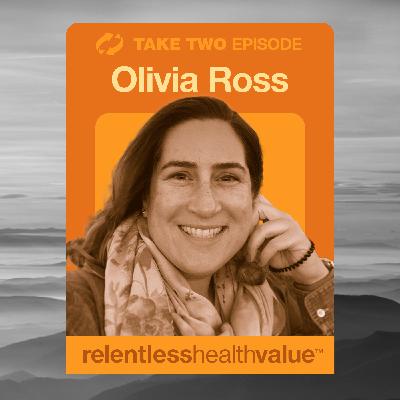


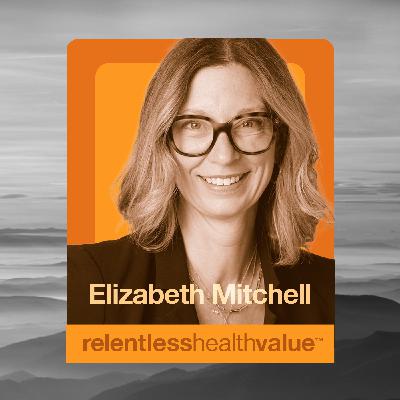
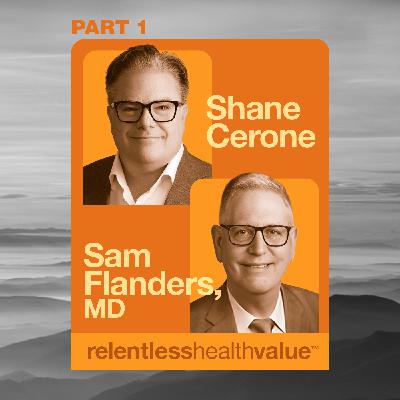
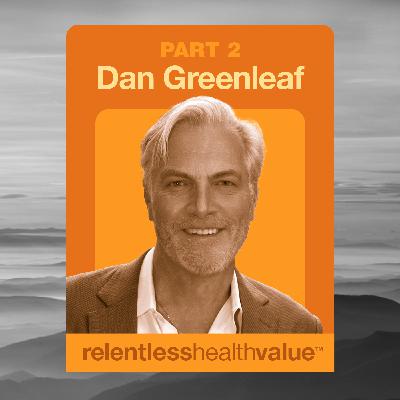
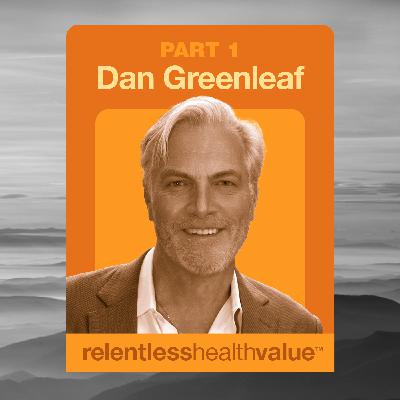

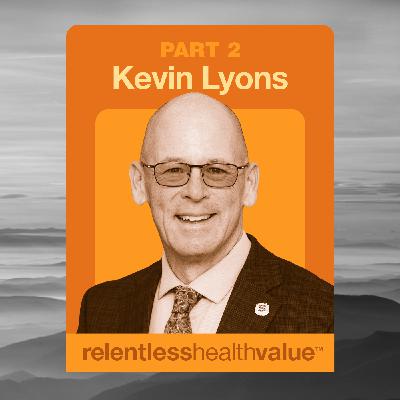



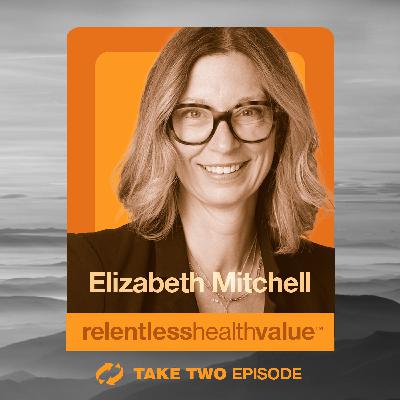
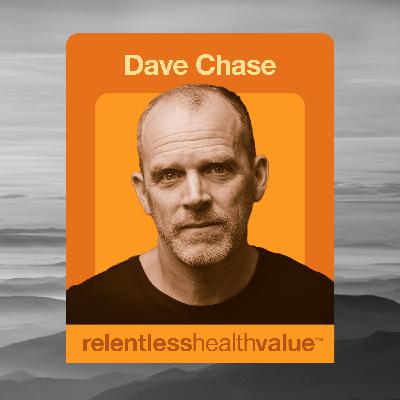
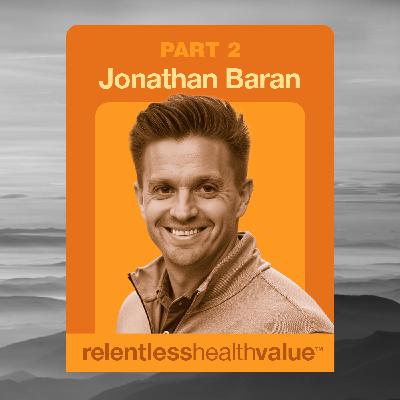








Thank you for sharing - this truly proves once again the importance of QME management if you want to avoid errors and injustice. Effective QME management is the backbone of a fair medical evaluation system. Coordinating reports, scheduling, and follow-up communication requires both medical and administrative expertise. A strong management framework helps reduce case delays and improve satisfaction for all parties involved. You can find more information about this here https://www.soundmedeval.com/qme-management/ . Streamlined QME operations ultimately mean better outcomes for patients and providers.